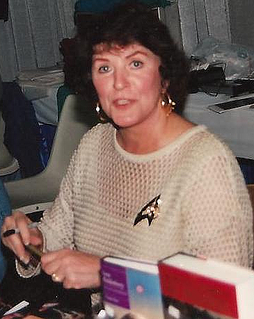A Quote by Michael Eklund
Actors sure have stories. We always have stories. At the end of our careers, all we have to take with us is our stories, and we have many of them.
Related Quotes
So I found myself telling my own stories. It was strange: as I did it I realised how much we get shaped by our stories. It's like the stories of our lives make us the people we are. If someone had no stories, they wouldn't be human, wouldn't exist. And if my stories had been different I wouldn't be the person I am.
What does it matter, if we tell the same old stories? ...Stories tell us who we are. What we’re capable of. When we go out looking for stories we are, I think, in many ways going in search of ourselves, trying to find understanding of our lives, and the people around us. Stories, and language tell us what’s important.
Humanity's legacy of stories and storytelling is the most precious we have. All wisdom is in our stories and songs. A story is how we construct our experiences. At the very simplest, it can be: 'He/she was born, lived, died.' Probably that is the template of our stories - a beginning, middle, and end. This structure is in our minds.
Stories? We all spend our lives telling them, about this, about that, about people … But some? Some stories are so good we wish they’d never end. They’re so gripping that we’ll go without sleep just to see a little bit more. Some stories bring us laughter and sometimes they bring us tears … but isn’t that what a great story does? Makes you feel? Stories that are so powerful … they really are with us forever.
When we die, these are the stories still on our lips. The stories we’ll only tell strangers, someplace private in the padded cell of midnight. These important stories, we rehearse them for years in our head but never tell. These stories are ghosts, bringing people back from the dead. Just for a moment. For a visit. Every story is a ghost.
The Nigerian storyteller Ben Okri says that ‘In a fractured age, when cynicism is god, here is a possible heresy: we live by stories, we also live in them. One way or another we are living the stories planted in us early or along the way, or we are also living the stories we planted — knowingly or unknowingly — in ourselves. We live stories that either give our lives meaning or negate it with meaninglessness. If we change the stories we live by, quite possibly we change our lives.’
We read novels because we need stories; we crave them; we can’t live without telling them and hearing them. Stories are how we make sense of our lives and of the world. When we’re distressed and go to therapy, our therapist’s job is to help us tell our story. Life doesn’t come with plots; it’s messy and chaotic; life is one damn, inexplicable thing after another. And we can’t have that. We insist on meaning. And so we tell stories so that our lives make sense.
Our stories are not meant for everyone. Hearing them is a privilege, and we should always ask ourselves this before we share: "Who has earned the right to hear my story?" If we have one or two people in our lives who can sit with us and hold space for our shame stories, and love us for our strengths and struggles, we are incredibly lucky. If we have a friend, or small group of friends, or family who embraces our imperfections, vulnerabilities, and power, and fills us with a sense of belonging, we are incredibly lucky.




































